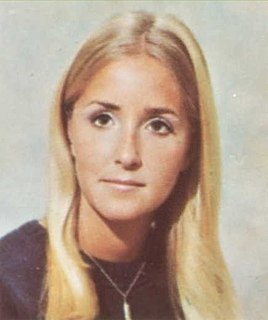A Quote by R. Buckminster Fuller
The reward for being a good problem solver is to be heaped with more and more difficult problems to solve
Related Quotes
We are more than our problems. Even if our problem is our own behavior, the problem is not who we are-it's what we did. It's okay to have problems. It's okay to talk about problems-at appropriate times, and with safe people. It's okay to solve problems. And we're okay, even when we have, or someone we love has a problem. We don't have to forfeit our personal power or our self-esteem. We have solved exactly the problems we've needed to solve to become who we are.
Solving the population problem is not going to solve the problems of racism, of sexism, of religious intolerance, of war, of gross economic inequality. But if you don't solve the population problem, you're not going to solve any of those problems. Whatever problem you're interested in, you're not going to solve it unless you also solve the population problem. Whatever your cause, it's a lost cause without population control.
I teach something called The Law of Probabilities, which says the more things you try, the more likely one of them will work. The more books you read, the more likely one of them will have an answer to a question that could solve the major problems of your life.. make you wealthier, solve a health problem, whatever it might be.
Cities are never random. No matter how chaotic they might seem, everything about them grows out of a need to solve a problem. In fact, a city is nothing more than a solution to a problem, that in turn creates more problems that need more solutions, until towers rise, roads widen, bridges are built, and millions of people are caught up in a mad race to feed the problem-solving, problem-creating frenzy.
There is a difficult transition in management from being the knowledgeable expert and the problem solver to becoming a process architect. The importance of good process in organizations is undervalued and people seldom get credited for putting good processes in place. It makes sense therefore that C-level executives don't want to delegate expertise and problem solving tasks which help them to "shine" and attract widespread recognition.
I feel like what we love to do is solve problems. If it's easy to solve, we find a more difficult one. There's always a way. In our world, we can build stuff. We can build more sets than you could ever build in live-action. We can build more props just for custom angles or perspectives. We'll build special trees for that, paint a sky. There's really no limitations, except that you run out of time and money at some point.





































